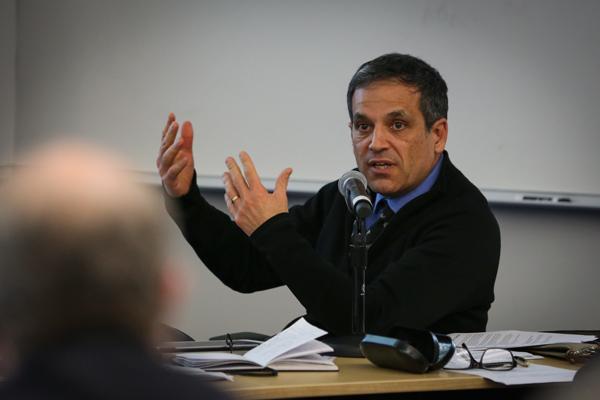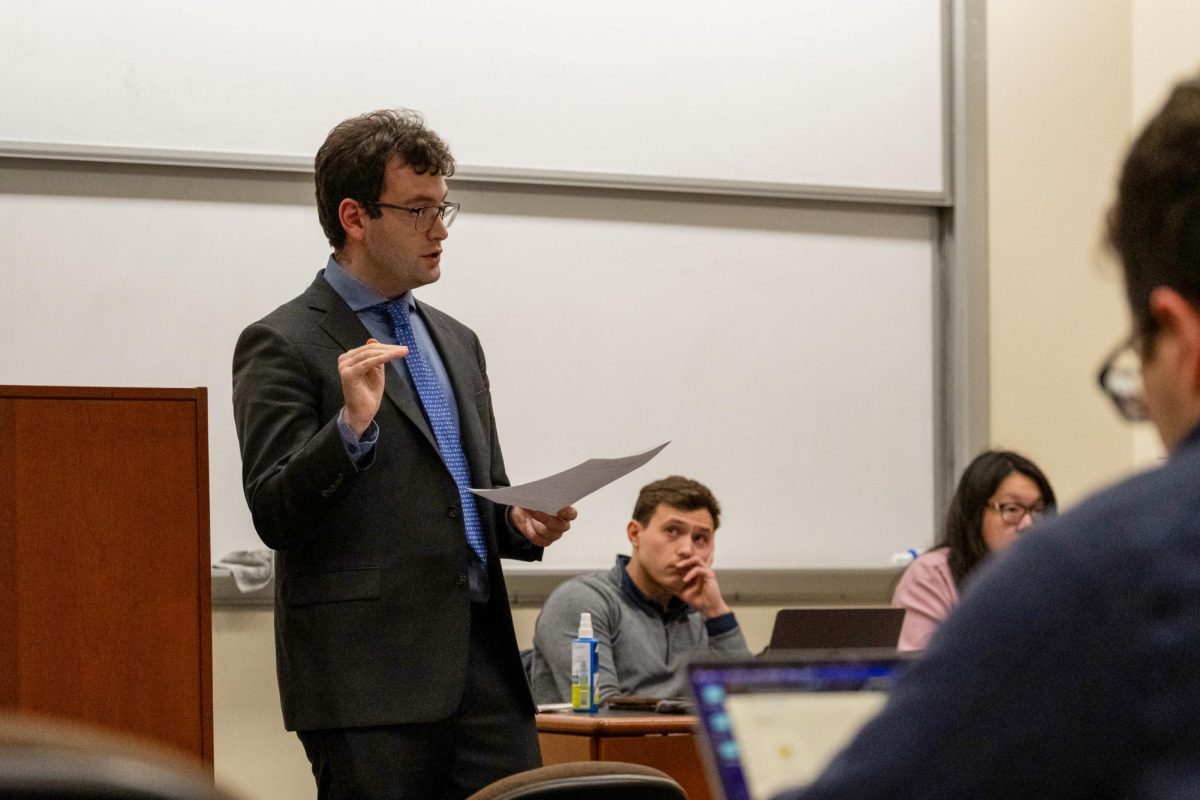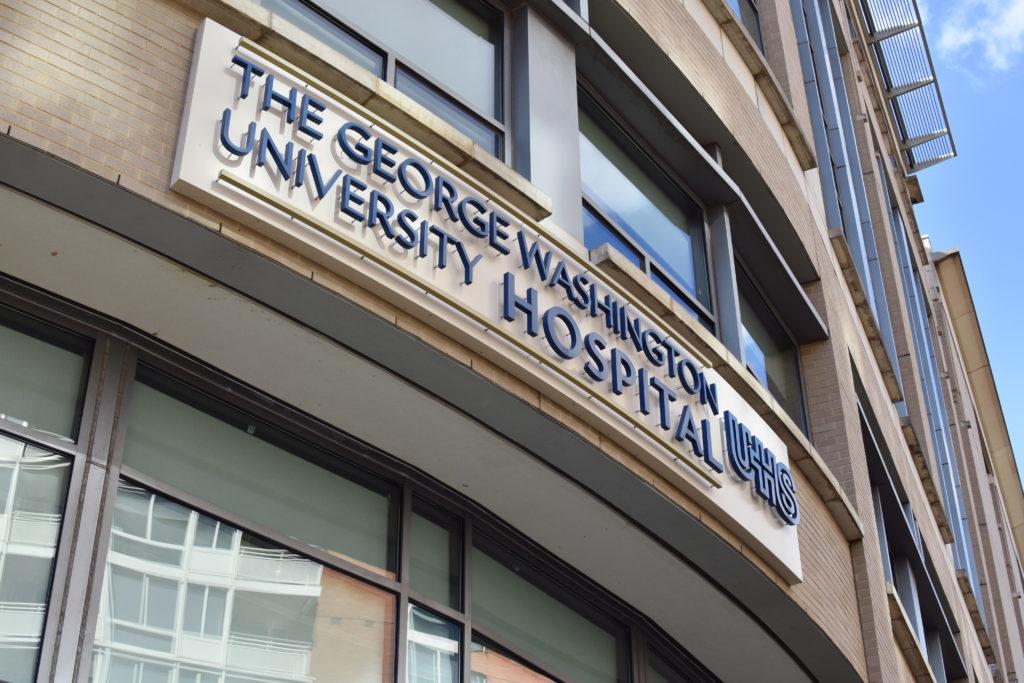Shifts in GW’s top administrative positions could give leaders a chance to reshape their vision for the University, faculty and experts said.
After the announcement that University President Steven Knapp would leave the University and that the interim provost would stay in his role on a permanent basis, GW has the opportunity to rework its priorities. Next year, a new leader could bring in fresh faces to carry out those goals.
While Knapp prioritized expanding GW’s science and math programs, incoming leaders – including Provost Forrest Maltzman, who was officially selected for the position in June – will have the opportunity to re-evaluate their focus.
Charles Garris, chair of the Faculty Senate’s executive committee and a member of the presidential search committee, said the Board of Trustees charted a new course when they conducted a search to find Knapp and may similarly adjust their vision in this search.
“When they were choosing Knapp, they were setting a new direction, a new vision for GW, but right now I think the board is wrestling with what the new vision for the president will be,” Garris said. “We are in the early stage of the search, but they have to decide what kind of president they want.”
Knapp said in an email that he hopes his successor will continue to work on making it easier for students to move between departments and schools as their interests change, developing “strategic partnerships” with institutions and agencies in the D.C. area and building out the Virginia Science and Technology campus.
A necessary hire
Knapp officially hired Maltzman as provost weeks after the University president announced this academic year would be his last at GW.
Knapp said he first got to know Maltzman when the now-provost helped lead the University’s accreditation process in 2008. Maltzman, who served as interim provost for six months and as vice provost for more than four years before that, was more than qualified for the role, Knapp said.
“His active and collaborative leadership style has served the University well,” Knapp said in the email. “I have every confidence in his ability to serve effectively as the University’s chief academic officer. Given his qualifications, it seemed unnecessary to deprive the University of a fully empowered provost for what might be a total of (at least) three years.”
Faculty said Knapp’s decision to hire Maltzman on a permanent basis prepares the University for a period of transition, even if officials didn’t conduct an external search for a provost.
Benjamin Hopkins, an associate professor of history and international affairs and a member of the Faculty Senate, said he thinks it was important to make Maltzman the permanent provost, because with other major transitions in leadership, it may be difficult to recruit an external candidate.
“As opposed to his predecessor and President Knapp, he is coming up from the faculty, which I think is a patently good thing,” Hopkins said.
Maltzman has been a faculty member at GW since 1993 and was the senior vice president for academic affairs and planning before taking over as provost.
Harald Griesshammer, an associate physics professor and a member of the Faculty Senate, said the decision was “healthy” because it ensures a variety of experiences and perspectives among administrators – from leaders who are promoted from within GW and those who are recruited externally.
“If you have only insiders then you have nepotism and inbreeding and all of that,” Griesshammer said. “If you have only outsiders coming in and running the administration, then you very often end up in a ‘we against them’ situation where the faculty perceives the outsiders as the wise guys who tell them how to run the ship which they have never served on.”
Changing the vision
Faculty and experts said it is probable that the next president will hire a new provost and other top officials.
Murli Gupta, the chair of the mathematics department who has worked at GW for almost 40 years, said transitions in top positions are expected with a new president.
“Normally the new leadership wants to have people that they consider their right hand man or woman,” Gupta said. “They might say to Provost Maltzman that he can stay on, or they might say, ‘We’ll look for someone else.’”
During his time as president, Knapp hired new deans for all of GW’s graduate and undergraduate schools, including Columbian College of Arts and Sciences Dean Ben Vinson and Elliott School of International Affairs Dean Reuben Brigety.
Jay Dee, the director of the higher education administration doctoral program at the University of Massachusetts Boston, said high-level administrators leave an institution en masse once one top leader resigns. Former provost Steven Lerman stepped down last January.
“In the past, an institution might see a wave of turnover every 10 years. Going forward, we might see these waves of turnover every couple of years because the environment of higher education has become so much more competitive, so much more driven by revenue generation and finances,” Dee said. “The pressures for success are very extreme.”
Anthony Yezer, a professor of economics, said the University needs a new president who can find the right people to help with GW’s “financial retrenchment.”
In fiscal year 2015, the University’s debt rose about 14 percent from the previous fiscal year, totaling nearly $1.6 billion. The $275 million Science and Engineering Hall added on to the debt when initial fundraising plans fell through and required officials to shift their spending plans, relying on revenue from GW’s properties to fund the construction.
Yezer added that he hopes the new president will focus less on building up the research side of the University and more on the areas GW is known for, like the political science and international affairs programs.
“A vast majority of students are here to study those things and that’s our comparative advantage, and in those areas we are hugely profitable,” Yezer said. “It would be nice if a president realized if you have a comparative advantage in one area, you should pursue that comparative advantage.”







